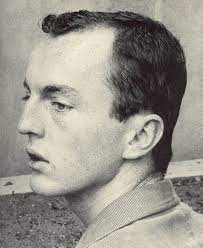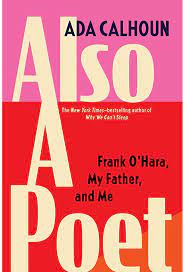
One of the great things about being a feral poet—one that wouldn’t know M, F, or A if he fell over them—is discovering poets that everyone else in the poetry world (hint: it’s precious small) has known forever. That’s what happened the day I met Frank O’Hara for the first time via his seminal work, Lunch Poems.
When I reviewed the book, I said I read the poems through the hair of my eyebrows. By that I meant I was frowning, not so much in disapproval as in wonder, at what I was reading. This guy was joyfully off the New York wall. Other people told me, with a bit of ennui built over time, “Oh, yes. He’s of the wonderful New York School.” Me, I missed the boat (not to mention the school), growing up a few precincts over in Connecticut.
Anyway, here’s the first poem that hit me that week—the first poem in O’Hara’s collection of Manhattan lunches, written in 1953 before I was me (and I’ve been “me” for a long, long time):
“Music” by Frank O’Hara
If I rest for a moment near The Equestrian
pausing for a liver sausage sandwich in the Mayflower Shoppe,
that angel seems to be leading the horse into Bergdorf’s
and I am naked as a table cloth, my nerves humming.
Close to the fear of war and the stars which have disappeared.
I have in my hands only 35c, it’s so meaningless to eat!
and gusts of water spray over the basins of leaves
like the hammers of a glass pianoforte. If I seem to you
to have lavender lips under the leaves of the world,
I must tighten my belt.
It’s like a locomotive on the march, the season
of distress and clarity
and my door is open to the evenings of midwinter’s
lightly falling snow over the newspapers.
Clasp me in your handkerchief like a tear, trumpet
of early afternoon! in the foggy autumn.
As they’re putting up the Christmas trees on Park Avenue
I shall see my daydreams walking by with dogs in blankets,
put to some use before all those coloured lights come on!
But no more fountains and no more rain,
and the stores stay open terribly late.
Doing a bit of research on O’Hara that day, I saw he died a bizarre death but a few years after the publication of Lunch Poems, getting hit by a beach taxi (whatever that is) on Fire Island and dying at the tender age of 40. Granted, not as bad as Keats dying at 25, but still a loss, considering what fun might have remained in the non sequiturs-to-be that comprised his poetry.
Since that initial encounter, I’ve employed the time-honored method of choosing poems via a random flipping of pages in the book. Rereading. Un-frowning. Refusing to judge. When it comes to poetry, there’s nothing quite like a “What the–?” rereading to smooth the brow.

